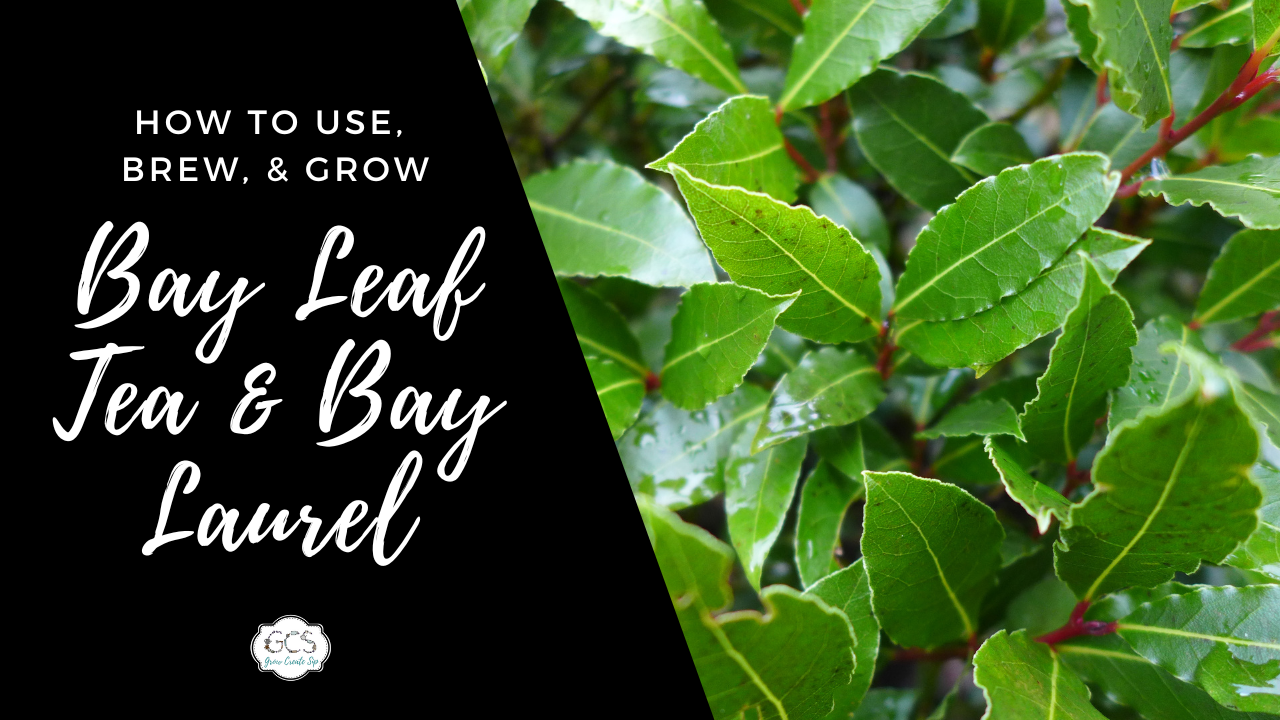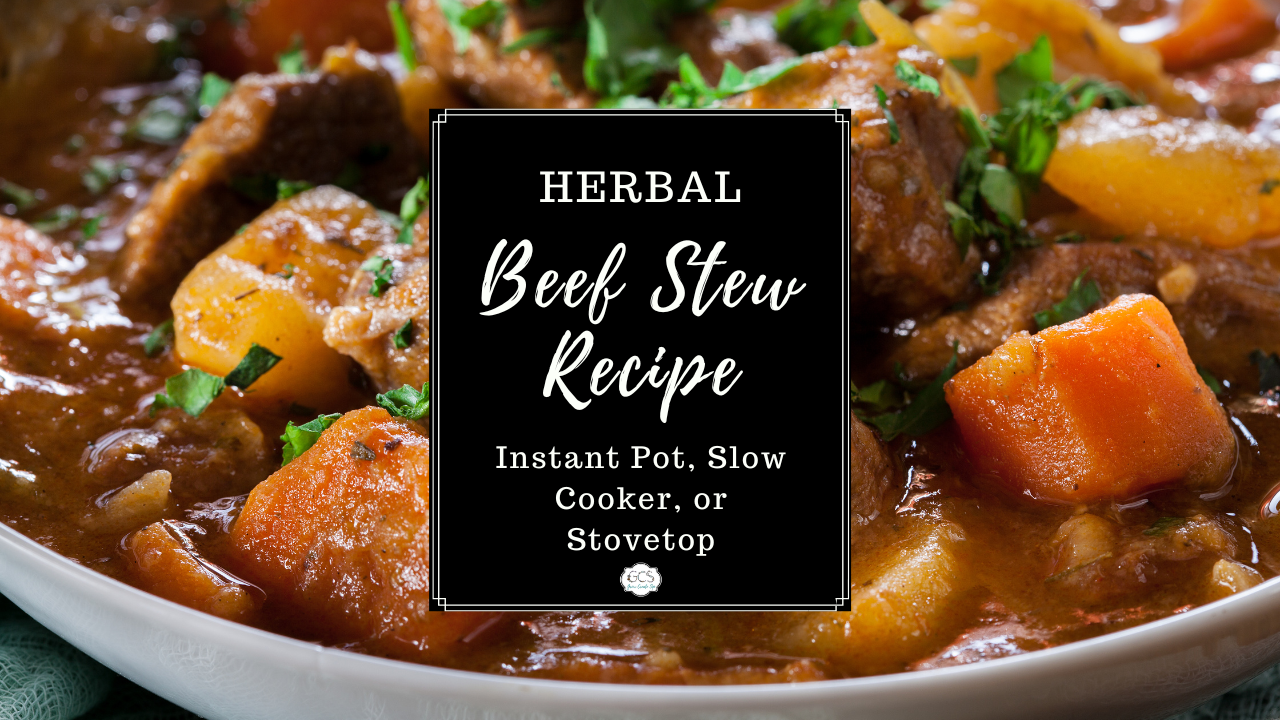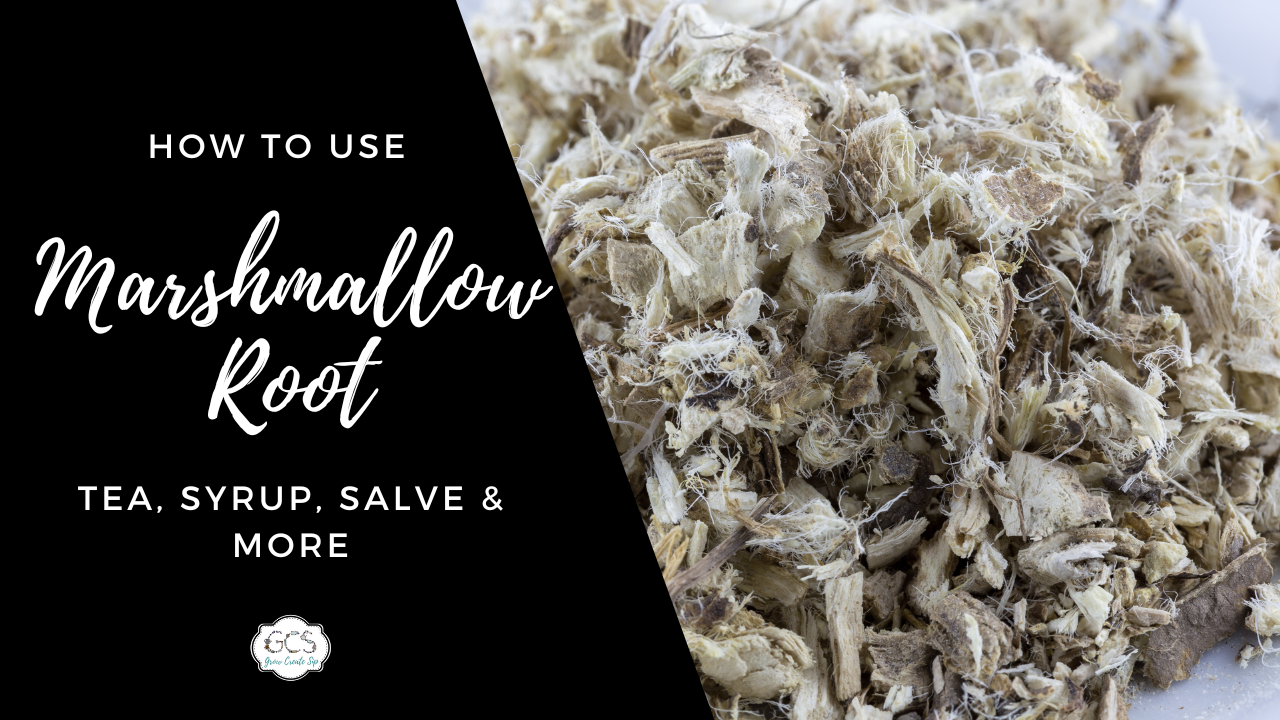Everything You’ve Ever Wondered About Elderberry Plants
Oct 21, 2025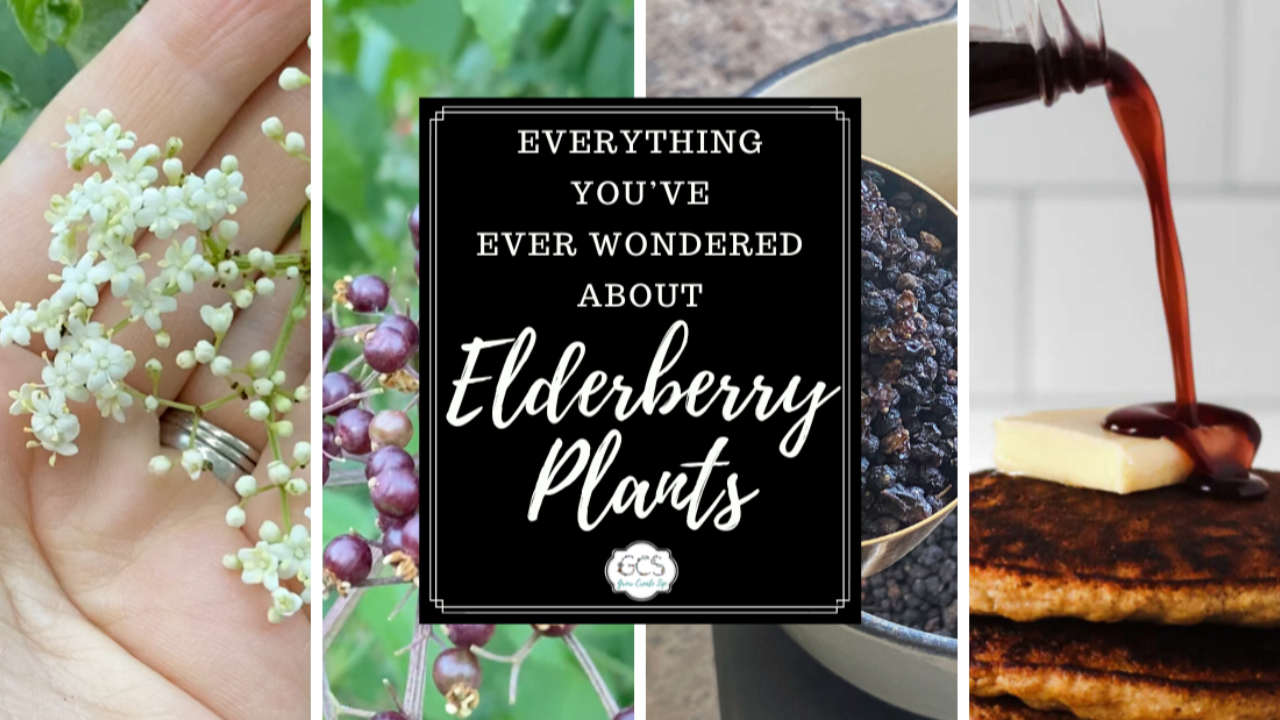
Elderberries grow all over where we are, at the foothills of the Cascade Mountain Range. My grandfather used to tell me that when they first moved here, they would go up and down the country roads collecting elderberries.
I firmly believe that our Creator left us all sorts of useful plants that look like common weeds, and I’m excited that so many of us are rediscovering their usefulness. With the scientific findings of recent times attaching such wonderful properties to the things we are growing in the garden, we can truly appreciate God’s creation and all that it offers.
Today, we will be covering the many health benefits and versatile uses of the elderberry plant. You will learn how to grow and propagate your own elderberry plants, how to make elderberry syrup recipes from scratch, and how to safely and proactively use elderberry to boost your health. After all, finding different ways to use natural medicine is the best way to maximize its benefits!
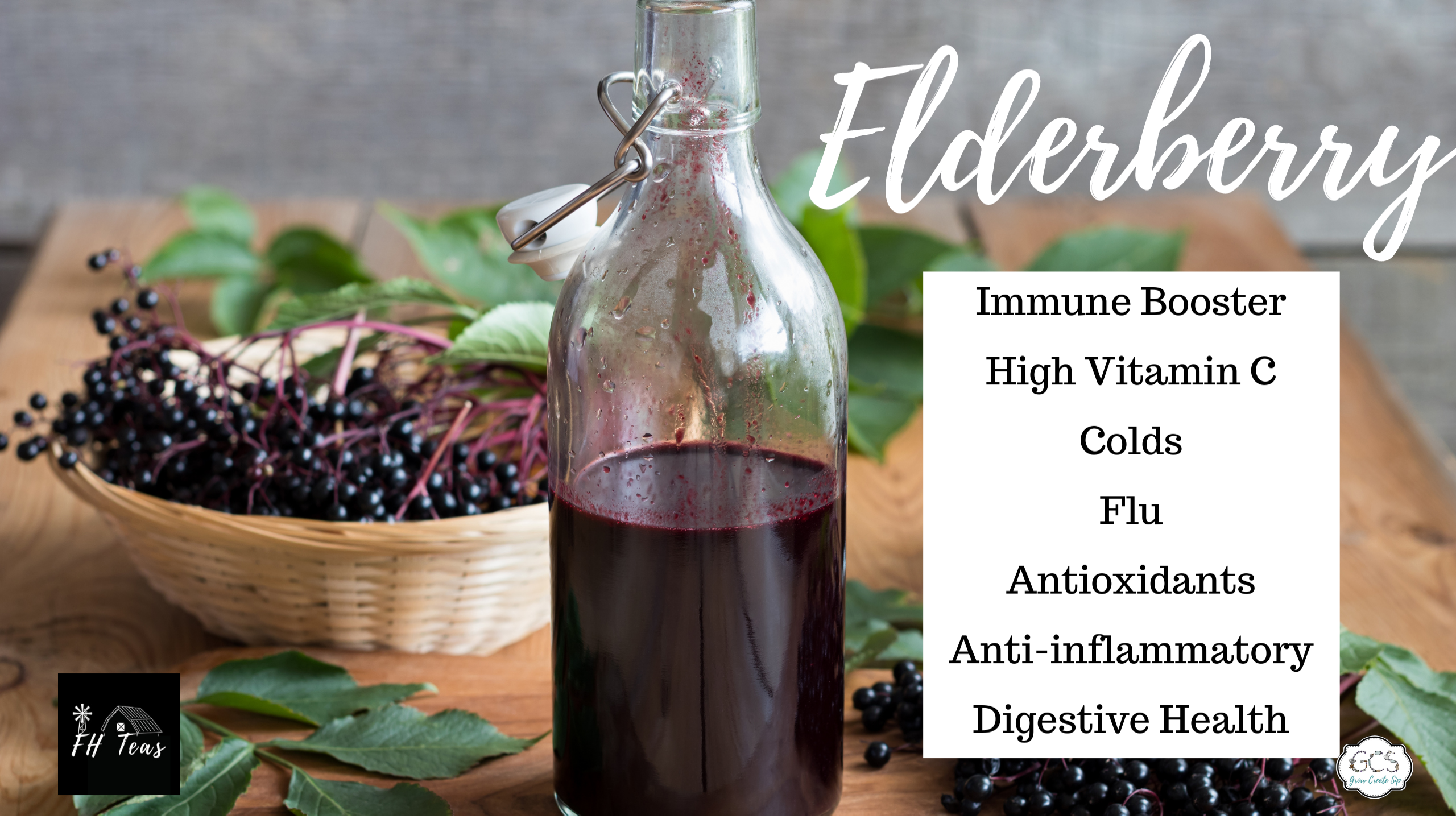
The Legal Stuff
This blog is provided by St. Fiacre's Farm LLC for informational purposes only. It does not constitute medical advice, and you should always seek the advice of a qualified healthcare provider for any medical questions or concerns. These statements have not been evaluated by the Food and Drug Administration. This product is not intended to diagnose, treat, cure, or prevent any disease. Please note that we may earn a small commission on any purchases you make through our affiliate links, at no additional cost to you. Thank you for your support!
What is Elderberry?
Elderberry is the fruit that grows on the Sambucus canadensis plant, which is also called the American elderberry plant. These berries have a deep purplish black color, and they grow on shrub-like trees.
They are a must-have in any herbalist's garden and are definitely on my list of top 10 herbs to stock in the apothecary. Did you know that elderberries have a wide range of health benefits, including the following?
- Boosts immunity
- Reduces inflammation and congestion
- Rich in antioxidants
- Antiviral properties
- Great source of vitamin C
- Supports respiratory function
- Promotes healthy digestion
- Fights symptoms of the cold and flu
While elderberry products have been used as a source of natural medicine for many years, they have really grown in popularity over the last 10 to 15 years, especially during the pandemic when folks started looking for more ways to keep their immune systems up. Who knew that this little fruit that we could forage on the side of the road would one day become a popular folk remedy?

Growing and Propagating Elderberry Plants
As mentioned earlier, elderberries grow on shrubby plants. We can use the terms “elderberry plant” and “elderberry bush” interchangeably, as they are the same thing. Let’s dive into some of the most important things you should know before you get started with growing your own.
Elderberries are fairly easy to grow, depending on your climate. Here in Oregon, we are blessed with ideal conditions for growing elderberries, and the bushes are often able to grow much taller here than they do in other regions — sometimes even up to 30 feet tall!
The best way to grow elderberry bushes is by propagating them from an already established plant. You can get a cutting from a neighbor or buy a plant from the store. Here are some conditions to keep in mind as you plant:
- Soil: Elderberry shrubs are not drought-resistant, but they can grow in different types of soil conditions. We recommend planting in moist, fertile, well-draining soil. Keeping your soil moist but not overwatered will help prevent root rot.
- Location: The most important thing to keep in mind is location. You will want to plant your elderberry bushes in a location where they will have plenty of room to grow and where they will have access to full sun or partial shade.
Be sure to check out our elderberry planting guide for more detailed information and all of our best tips for planting your own shrubs!
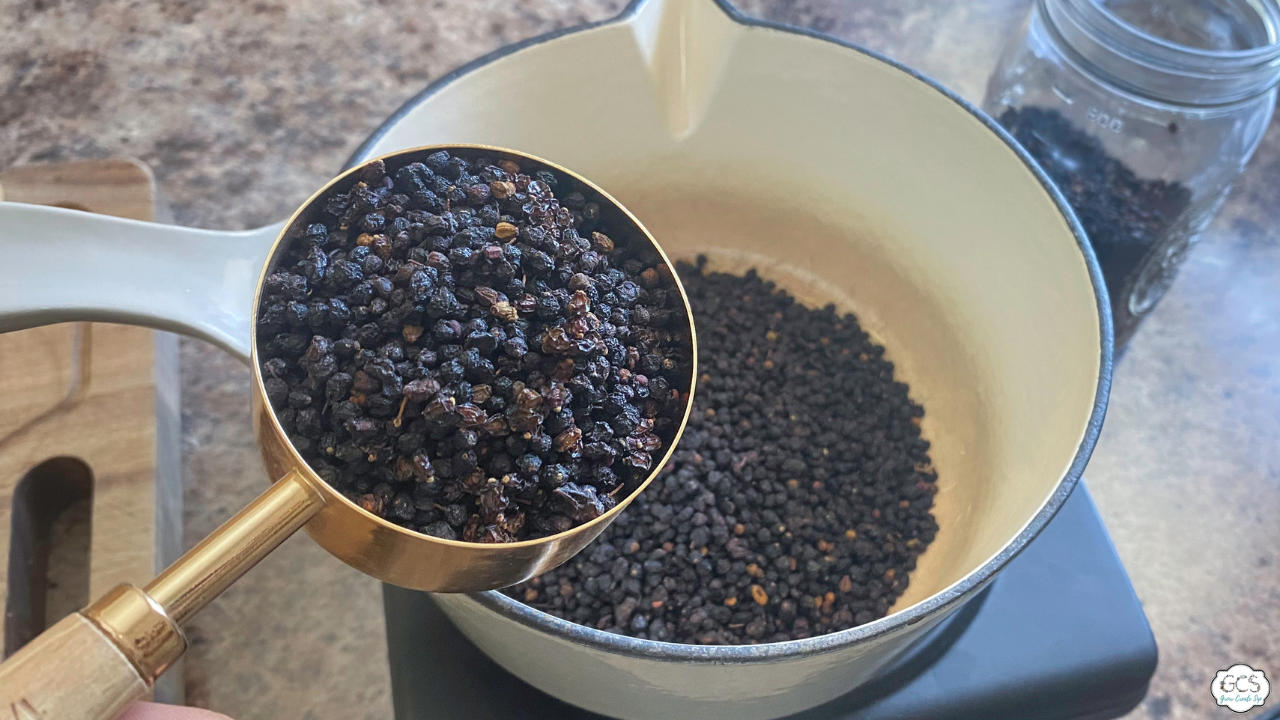
Using an Elderberry Plant
If you have never tried elderberry before, you are in for a treat! Elderberries are great for so many things — from jams and jellies to elderberry syrup, gummies, and more. Here are some of our favorite ways to use elderberries and enjoy not only their taste, but also their medicinal properties.
Syrup
What we love most about elderberry syrup is how versatile it is. You can take it by the spoonful, add it to a cup of tea, mix it into smoothies, use it in baking recipes, or even pour it on top of yogurt or pancakes! However you choose to use this syrup, it will add flavor, color, and of course, nutrition.
In our elderberry syrup video, we answer some of the most common questions about these berries. You will be glad to know that elderberry syrup is safe for both kids and adults! However, dosage needs may vary. A smaller dose, like one teaspoon, may be more suitable for children, while adults can take one tablespoon.

While elderberry syrup can be taken at the first sign of cold or flu symptoms to fight illness, it is also important to think about how you can incorporate the elderberry plant into your health routine proactively. Thinking about how you can build up your immunity is key to preventing illness from the get-go and staying well.
On top of having various health benefits, homemade elderberry syrup recipes are also easy to make with all-natural ingredients. You can follow along with this tutorial video to see how our syrup recipe comes together.
Are you ready to make your own syrup? Our elderberry syrup kit comes with the herbal mix you will need, along with a FREE recipe ebook that you can use to herbalize your kitchen.

Gummies
These DIY sea moss gummies are among our favorite treats to make with elderberry plants. This homemade recipe takes the health benefits of sea moss, including joint support, and combines it with the incredible immune-boosting properties of elderberry.
These gummy bears are a healthier alternative to gummies that are made with artificial ingredients, and they are also a fun way for folks of all ages (including kids) to take supplements! Making your own gummies will be fun and easy with the help of our elderberry gummy kit.
Tinctures
Elderberry tinctures are a must-have item in your apothecary. With this Farmhouse Teas elderberry tincture kit, it’s easy to have an herbal immune support bottled and ready to go in a pinch. This kit includes all the supplies you will need: bottles, funnels, and our herbal elderberry mix, along with directions and a recipe!
Tinctures can be used on their own (dropped under the tongue) or incorporated into food or beverages. For best results and preservation, be sure to store your tinctures in a cool, dark place.

Jams and Jellies
We love whipping up a batch of elderberry jam and using it in lots of different culinary creations. Homemade fruit jam is delicious on toast, bagels, or pancakes, and it will also look stunning in a charcuterie spread. Don't forget gifting either! A delicious jar of homemade jam is a simple but meaningful gift that you can make with the help of an elderberry plant. It is sure to make your loved ones feel special.

Teas
Of course, we are going to include tea on this list! Tea with elderberries, such as our Farmhouse-style herbal tea recipe for the flu, will warm you up while also boosting your immune system and providing anti-viral support.
When it comes to brewing the perfect cup, elderberries can be among your main ingredients, or you can mix homemade berry syrup into another tea of your choice. Two of my favorite teas that go well with elderberry are chamomile and lemon green ginger tea.

Questions Often Asked About the Elderberry Plant
Can elderberries be consumed raw?
No. Whole elderberries cannot be consumed raw because they contain compounds like cyanide that can make us sick. However, elderberries will lose their toxicity when cooked or dehydrated, making elderberry products safe to consume when they are prepared properly.
When is the best time to start growing elderberry plants?
Ultimately, the best time to grow will depend on your region and climate. The best time to propagate cuttings is during the plant’s dormant season and when there is no frost. For elderberries, this would be between late Spring and early Fall.
Is it safe to consume elderberries every day?
Yes, elderberries are generally considered safe for daily use if you stick to proper dosage and the products are prepared safely. However, you should always consult with a healthcare professional if you have concerns about adding any supplements to your own health routine or your child’s routine.
One Berry to Rule Them All
Elderberries are to herbalism what chickens are to homesteading, the gateway 'drug'. When you learn to make all of these herbal concoctions with elderberries, making them with other herbs becomes second nature. Every home needs an herbalist, and you are well on your way to providing natural care for those you love.
We hope that this post leaves you feeling inspired to find a new use for elderberries in your life! Whether you are using elderberry syrup recipes on pancakes or in tea, or preparing tinctures for your apothecary shelf, elderberry products are just as fun to make as they are helpful to use. Natural medicine is all around us, and learning the best ways to use what God has provided us with will make life even more beautiful.
Grow more in your herbalist experience by making sure to grab our free monograph worksheet so that you can keep track of what each herb you learn about does! Grab your free herbal monograph journal pages here!
Read More About Herbalism
- D.I.Y. Herbal Cough Drop Recipe
- What is an Herbal Monograph and How to Use it
- The Best Menopause Tea & Hot Flash Relief
- Top 10 Healing Herbs for the Home Apothecary
- Home Apothecary Labeling Tips & Downloads
- Could Tea Help You Lose Weight? Best Herbs for Weight Loss












